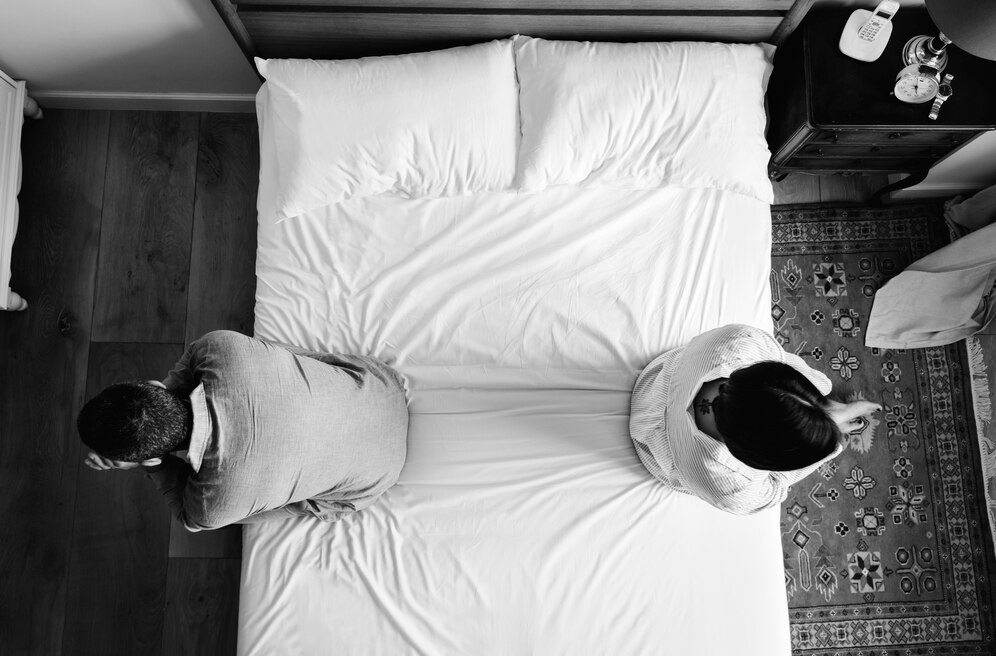A healthy marriage is ideally a partnership of equals, where both individuals contribute equally to the relationship. However, sometimes this balance can tilt, leading to a one sided marriage. Here we aim to illuminate the signs of such an imbalance, offering insights for those who might be experiencing this in their marital life.
1. There’s Lack of Mutual Support
In a one sided marriage, one partner often finds themselves shouldering most of the emotional, and sometimes even financial, support. If you’re always the one offering comfort, encouragement, or financial help without receiving much in return, it could be a sign of an imbalanced relationship.
2. Your Needs Are Consistently Ignored
If your partner consistently overlooks your needs while prioritizing their own, it’s a classic sign of a one sided marriage. This can manifest in various ways, from neglecting your emotional needs to disregarding your preferences and choices.
3. You’re Always Making Way More Compromises
Compromise is essential in any marriage, but it should be mutual. In a one sided marriage, one partner finds themselves constantly bending and adjusting to accommodate the other, often at the cost of their own happiness and comfort.
4. Lack of Reciprocal Communication
Communication is a two-way street. In a one sided marriage, you might find that you’re always the one initiating conversations, making plans, or trying to resolve issues, while your partner remains passive or unresponsive.
5. You Feel Lonely in Your Relationship
Feeling lonely, even when you’re with your partner, is a poignant indicator of a one sided marriage. This emotional isolation can stem from a lack of meaningful communication, emotional connection, or shared interests.
6. Your Efforts Go Unacknowledged
Consistently feeling unappreciated for your efforts in the relationship can be demoralizing. If your partner rarely acknowledges or appreciates the things you do, it can lead to feelings of resentment and dissatisfaction.
7. Imbalance in Household Responsibilities
A one sided marriage often includes an unfair distribution of household chores and responsibilities. If you’re always the one managing home affairs, regardless of your professional commitments, it indicates a lack of balance in the relationship.
8. You’re the Only One Investing in the Relationship’s Future
Planning and investing in the future should be a joint effort. If you find yourself solely responsible for planning your future, whether it’s saving for a home or planning family vacations, it reflects a disparity in commitment levels.
9. You Feel the Burden of Keeping the Marriage Alive
Feeling solely responsible for the survival and health of your marriage is a heavy burden. If you’re the only one making efforts to keep the spark alive, be it through date nights or counseling, it’s a sign of imbalance.
10. Your Self-Esteem Has Suffered
Being in a one sided marriage can take a toll on your self-esteem. If you find yourself feeling unworthy or doubting your value in the relationship, it’s a clear indicator that the dynamic is skewed.
Recognizing these signs in your marriage is the first step towards addressing the issue. It’s important to communicate your feelings with your partner and seek professional help if necessary. Remember, a marriage is a partnership, and both parties should feel valued, heard, and respected.
FAQs – Frequently Asked Questions
1. What are the common emotional effects of being in a one sided marriage?
Being in a one sided marriage can lead to feelings of loneliness, resentment, and low self-esteem. It often results in emotional exhaustion, as one partner consistently tries to meet the needs of the relationship without adequate support or reciprocation.
2. How can I communicate my concerns about our one sided marriage to my partner?
Effective communication involves choosing an appropriate time and setting, using ‘I’ statements to express your feelings, and being clear about your needs and concerns. It’s also important to listen to your partner’s perspective and seek a mutual understanding.
3. Can counseling help in resolving the issues of a one sided marriage?
Yes, counseling can be beneficial. A professional therapist can provide a neutral space for both partners to voice their concerns. They can offer guidance and strategies to improve communication, rebalance the relationship, and address underlying issues.
4. What should I do if my partner denies the existence of a one sided dynamic in our marriage?
If your partner is in denial, it might be helpful to seek individual counseling to navigate your feelings and determine your next steps. Sometimes, having a professional’s perspective can also help in getting your partner to recognize the issues.
5. Is it normal to feel guilty for acknowledging that my marriage is one sided?
Feeling guilty is a common reaction, especially if you care deeply about your partner and the relationship. It’s important to recognize that acknowledging the problem is a vital step towards improving your marriage or making necessary decisions for your well-being.
6. How long should I try to fix a one sided marriage before considering other options?
The duration varies for each couple. It’s essential to assess whether there’s progress and mutual effort in addressing the issues. If over time there’s no improvement, it might be worth considering other options for the sake of your emotional and mental health.
7. Can a one sided marriage ever become balanced again?
With mutual effort, open communication, and possibly professional help, it is possible for a one sided marriage to evolve into a more balanced and fulfilling relationship. However, this requires commitment and willingness to change from both partners.
8. How can I maintain my self-esteem while in a one-sided marriage?
Maintaining self-esteem involves engaging in activities that boost your sense of self-worth, seeking support from friends and family, and possibly professional help. Remembering your value independent of your relationship is crucial.




